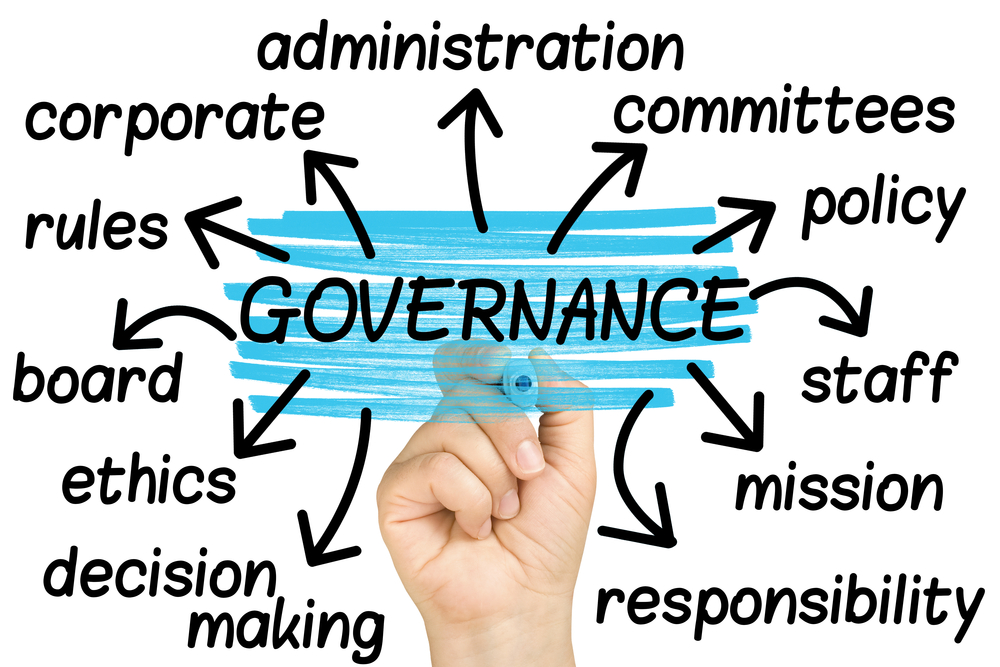Effective non-profit board governance is critical to the success of any non-profit organization. This list was started as the inaugural post to CharityLawyer Blog. The post struck a nerve, was mentioned by the Chronicle of Philanthropy, the Nonprofit Quarterly, and numerous bloggers and Twitter users.
Table of contents
- Top 15 Non-Profit Board Governance Mistakes
- 1. Failing to Understand Fiduciary Duties
- 2. Failing to Provide Effective Oversight
- 3. Deference to the Executive Committee, Board Chair, or the Organization’s Founder
- 4. Micro-managing Staff
- 5. Avoiding The Hard Questions
- 6. Insufficient Conflict Management
- 7. Lack of Awareness of Laws Governing Tax-Exempts
- 8. Operating with Outdated, Inconsistent Governing Documents
- 9. Airing Disagreements Outside the Boardroom
- 10. Failure to Cultivate Board Diversity
- 11. Recruiting and Selecting Board Members Without Due Care
- 12. Failing to Educate and Motivate Board Members
- 13. Failing to Document Actions Appropriately
- 14. Failing to Review Program Effectiveness and Efficiency and Take Appropriate Follow-up Actions
- 15. Failing to Hold Executives (and Nonparticipating Directors) Accountable
San Francisco’s tax-exempt organization’s lawyer and publisher of the Nonprofit Law Blog, Gene Takagi, reviewed the list and added five more governance mistakes from his own experience. The expanded list is instructive and therefore I have posted it in its entirety here.
Top 15 Non-Profit Board Governance Mistakes
1. Failing to Understand Fiduciary Duties
When you volunteer to serve as a director or officer of a non-profit, you accept the responsibility to act with the duties of good faith, due care, and loyalty. You also accept the potential liability for failing to fulfill those duties.
Increased scrutiny from the I.R.S., Congress, state attorneys general, the Department of Justice, donors, and the media require vigilance at every step.
It is no longer sufficient to rubber-stamp committee or staff recommendations or to simply abstain from dicey decisions. Today, board service comes with real responsibilities and real consequences for those that fail to live up to them.
2. Failing to Provide Effective Oversight
Boards are entitled to delegate tasks to committees, officers, staff, or in certain cases, professionals, but only if they perform sufficient oversight. Oversight is commonly exercised through policies and procedures so long as the board ensures that the policies and procedures are actually followed.
Common oversight mechanisms include the review of financial statements and the annual Form 990 as well as the implementation of various governance policies.
Popular governance policies for non-profits include
- conflict of interest policies
- executive compensation policies
- travel and expense reimbursement policies
- whistleblower policies
..among others.
Difficult tasks that require more time and focused attention can be delegated to committees. Common governance committees include those designed to oversee finances, investments, audits, and compensation.
3. Deference to the Executive Committee, Board Chair, or the Organization’s Founder
No one owns a tax-exempt non-profit. No one committee, director, or individual can control the organization. The executive committee, if one exists, is typically charged with acting on behalf of the board when the board is not in session and cannot be easily convened.
It is, however, accountable to the full board and should not be permitted to operate as a mini-board. The chair’s primary duty is typically to preside over board meetings and to act as a liaison between the board and the chief executive. The chair does not have the power to override the decisions of the board.
Similarly, the founder may act as the chief executive and run the day-to-day affairs of the organization. The founder may also sit on the board, but even founders serve at the pleasure of the board. The board has a duty to review the performance and set compensation for the chief executive and if necessary, censure or even terminate the chief executive.
4. Micro-managing Staff
For a non-profit organization with paid staff, once board members demand keys to the organization’s offices and start making direct demands on staff that report to the chief executive, the board has crossed the line. The board’s key duties are to provide oversight and strategic direction, not to meddle in the organization’s day-to-day affairs.

Board members who cross this line are undermining the authority of the chief executive to their own detriment and should be prepared to quit their day jobs. Similarly, staff should not invite micromanagement by asking the board to take on day-to-day tasks that the staff should be handling.
The size and budget of smaller organizations necessitate some blurring of these lines, but board members and staff should know their roles and attempt to adhere to them as much as possible.
5. Avoiding The Hard Questions
It is can be uncomfortable to ask tough questions or to disagree with one’s fellow board members. However, groupthink rarely leads to sound decision-making and more frequently leads to non-profit board governance mistakes. Often, the most valuable board members are the ones who, calmly and respectfully, speak their minds.

It is important to set a tone that encourages a free exchange of ideas, both good and bad. Open, vigorous discussions about key issues should be encouraged. A board that passes every resolution unanimously should evaluate whether it needs to do more to encourage a thoughtful and open discussion.
6. Insufficient Conflict Management
Perhaps the greatest source of non-profit board governance mistakes is inadequate conflict management. If a conflict of interest is with an insider, their family member, or business, it is not enough to simply disclose the conflict and have the disinterested directors approve the transaction.
In such cases, the disinterested members of the board need to consider alternative arrangements that do not give rise to a conflict of interest. If after considering alternatives, the board still finds the transaction with the insider is in the best interest of the organization, then the board should carefully document the basis for the decision and the fact that the interested director did not participate in the deliberations or vote.
The best practice is to follow the procedures outlined in the intermediate sanctions regulations to properly analyze and document the proposed transaction.

7. Lack of Awareness of Laws Governing Tax-Exempts
Directors that hail from the for-profit world often assume non-profits operate in a less-regulated environment. In reality, the opposite is true. Tax-exempt organizations enjoy an array of taxes and other benefits.
To ensure that there is no exploitation of those benefits, Congress and local governments have imposed additional legal requirements that tax-exempts must follow. It is essential that directors of tax-exempt entities be aware of the various federal, state, and local laws that apply to the organization.
Many directors are unaware whether they are governing a private foundation, a public charity, a supporting organization, or another form of tax-exempt entity; All of which are subject to different limits on their activities.
Board members should understand, at a minimum, the penalties they face in certain situations, such as
- overpaying key employees or other insiders
- engaging in excessive lobbying or political activities
- accommodating tax shelter transactions
- making egregious bad bargains on behalf of the organization
- the impact of failing to pass the public support test
..among others.
Ongoing board training and orientation for new board members is often the best solution.
8. Operating with Outdated, Inconsistent Governing Documents
Over time, many organizations change their mission and purpose without updating their governing documents. Similarly, many organizations develop governance practices that do not comply with their original governing documents.
For example, it is not uncommon to see bylaws that call for voting members although no member votes have ever taken place or bylaws with a term that calls for the cessation of the organization on a date that has long since passed.
Frequently, these issues stem from copying another institution’s bylaws without regard to the distinctions between the organizations or current law. Encourage compliance by:
- conducting regular reviews of the governing documents
- checking the bylaws before electing additional officers or directors
- creating additional committees, adopting amendments, etc.
Well drafted, compliant, and up-to-date bylaws are a key tool to help the board members avoid non-profit board governance mistakes.
9. Airing Disagreements Outside the Boardroom
Another key threat to effective non-profit board governance is a failure to protect confidential information. Every board’s motto should be what happens in the boardroom stays in the boardroom.
Inherent in the fiduciary duty of loyalty that all board members must adhere to, is an implied duty of confidentiality. Once an issue is settled by board vote, the board members who voted against the majority must present a united front. If a vote is so disagreeable that a board member cannot carry on in this manner, the board member should consider resigning.
In extreme cases, if the board member believes the corporation’s rights are being violated, the board member could join together with other like-minded board members to bring a derivative suit to enforce the organization’s rights.
10. Failure to Cultivate Board Diversity
The initial board is typically made up of friends and advisors of the organization’s founder. Over time, the initial board may reach out to their trusted friends and advisors to fill vacancies.
This approach to board recruitment can lead to the usual suspect syndrome. This is where the same individuals who went to the same schools, belong to the same clubs, and hail from the same neighborhoods and professions are institutionalized onto an organization’s board.
If your organization is run by a group of usual suspects, consider mixing it up by creating a matrix of skills, experiences, and backgrounds that would add valuable perspectives to the board. Those with law, accounting, and fundraising skills are obvious choices.

Substantive mission-related skills are also important. For example, an educational organization may want to recruit a retired teacher or school administrator; whereas, a domestic violence shelter may want to include a policy expert, social worker, or someone who has been a victim of abuse.
Plus, Gene Takagi’s excellent non-profit board governance suggestions:
11. Recruiting and Selecting Board Members Without Due Care
We sometimes select friends, relatives, and business associates often because we believe that they will share our vision, support our views, and make meetings pleasant. And sometimes because we can’t find anyone else.
We sometimes select influential and wealthy individuals because they will contribute substantial sums to the organization and connect us to their network of other influential and wealthy persons.
All of this may be well and good, but only if we make sure that we select directors who are going to attend meetings, provide real oversight, and govern using their independent judgment.

12. Failing to Educate and Motivate Board Members
If we’re not in startup mode, we may have, at least temporarily, a number of directors who regularly fail to meet their legal duties of care and loyalty.
Amidst all the media attention on cases involving intentional misconduct, we should recognize that the vast majority of directors simply don’t understand what their roles are. They believe that they will not hold accountability for their inaction.
It’s up to the president, chair, executive director, and really each board member to correct this lack of understanding. While this may be an ongoing (and seemingly Sisyphean) process, we can make some quick fixes.
- Set up a basic orientation process.
- Invite a non-profit-exempt organization’s lawyer to present to the board (directors’ ears tend to perk up when they hear the word “liability”).
- Regularly send out information to the board about the organization’s major issues (it’s okay to be repetitive if the issues remain outstanding) and how board members might help.
- Have the board conduct a SWOT (strengths, weaknesses, opportunities, threats) analysis on itself (not just the organization) and create an action plan based on the analysis.
13. Failing to Document Actions Appropriately
Some of us adopt minutes that are virtual transcripts of board meetings. Others adopt minutes that only document actions without any mention of the process of deliberations.
What’s proper? Well, it depends. But often what’s most appropriate lies somewhere between these two extremes.
Documenting every discussion could create greater exposure for liability. It also makes it unlikely that there will be a review of the minutes except in cases where we are looking for something specific.
On the other hand, documenting only actions can result in a loss of institutional knowledge about why certain decisions were made. It can also provide less evidentiary support of a board’s due care in making decisions.

Documenting nothing is not an acceptable alternative, but it’s a common problem. Do we incorporate minutes of board committee meetings into our minute books? Do we even have minute books?
14. Failing to Review Program Effectiveness and Efficiency and Take Appropriate Follow-up Actions
Many of us board members understand that we are fiduciaries and have a responsibility to provide financial oversight. And we “know” that our charities are doing great work because the executive tells us so.
But how do we really know this? And if charities exist to provide some sort of public good, and not to maximize profits, isn’t programmatic oversight just as, if not more, important than financial oversight?
15. Failing to Hold Executives (and Nonparticipating Directors) Accountable
This non-profit board governance mistake earned a retweet from NY Times philanthropy correspondent Stephanie Strom.
How many of us give regular performance reviews to our executives? Do we just give pats on the back (which we should do whenever deserved)? Do we also take a hard look at deficiencies and take corrective actions?
Many non-profits are transitioning to younger, less experienced leaders as the boomers start to retire or move to other positions. Mistakes happen and may happen more often with new leaders.
How do we respond to this? Do we document errors in judgment, complaints, abuses of authority?
Are we prepared to fire an executive even without malfeasance where he or she is just not doing his job? And what about removing directors who don’t show up at meetings or otherwise fail to fulfill their governance responsibilities?
Tricky stuff, but don’t we need to deal with it?
Related Post: IRS Study on Good Governance
Ellis Carter is a nonprofit lawyer with Caritas Law Group, P.C. licensed to practice in Washington and Arizona. Ellis advises nonprofit and socially responsible businesses on corporate, tax, and fundraising regulations nationwide. Ellis also advises donors with regard to major gifts. To schedule a consultation with Ellis, call 602-456-0071 or email us through our contact form.

